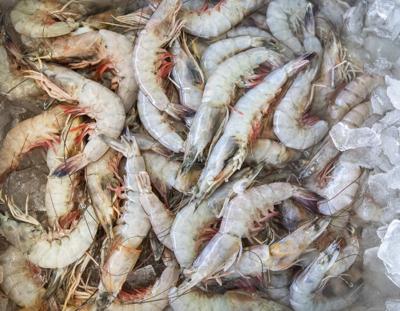WASHINGTON ā Though they barely agree on anything politically, Democratic Rep. Troy Carter, of New Orleans, and Republican Rep. Clay Higgins, of Lafayette, came together in an attempt to heighten the regulatory wall protecting Louisianaās seafood industry from foreign imports.
They introduced legislation Wednesday that gives the federal Food & Drug Administration additional powers to impound and destroy imported seafood found contaminated, adulterated or misbranded.
āThis bill protects consumers from potential health risks and upholds the integrity of our food supply chain, while supporting Louisiana fishermen and seafood processors,ā Carter said. āBy granting the FDA the necessary authority to destroy food products that fail to meet our strict health and safety standards, we are closing a dangerous loophole that has allowed contaminated seafood to enter our markets.ā
The FDA to seize and destroy food, drugs and other products that are āadulterated or misbranded.ā Often, however, when inspectors deny entry for food, the shipper retains the product and some try again at a different port in hopes of finding more lax or no inspections.
The Higgins-Carter proposal changes wording in the law that allows the FDA greater leeway to impound and destroy seafood imports that are refused.
āBillions of pounds of uninspected seafood continue to enter our country, causing major health concerns,ā Higgins said. āIn my opinion, foreign products donāt even come close to the quality of Louisiana seafood. This legislation provides the FDA with the authority to destroy illegal seafood imports and ensures that contaminated products donāt reach American markets.ā
A February 2023 FDA report noted that imported seafood ā mostly shrimp, salmon and tilapia ā accounted for 94% of the seafood sold in the United States. America also imports 55% of its fresh fruits and 32% of the fresh vegetables consumed.
Much of the imported seafood comes from India, China and southeast Asia and is raised by aquaculture. Those facilities often use drugs and chemicals to avoid disease.
Testing isn't keeping pace
The United States Government Accountability Office, an independent, nonpartisan agency that provides audits for Congress, has been warning for years that FDA inspections have not been keeping up with increasing imports of seafood being brought into the country for sale to American consumers.
A determined that the FDA had not met its domestic and foreign inspection targets since 2018.
āFor foreign facility inspections, FDA conducted far fewer than the annual target of 19,200 inspections,ā the GAO reported.
With only 432 investigators as of July 2024, FDA officials donāt consider the target achievable, the GAO reported.
Only 2% of seafood was inspected coming into the United States and 0.1% of that amount was sampled for drugs/antibiotics. Of the shrimp sampled for drugs and antibiotics, 12.2% showed positive for drug residue, a 2017 GAO report stated.
GAO recommended congressional legislation.
Though the report is from 2017, has used freedom of information requests to keep tabs on the inspections and found that less imported seafood is being sampled these days.
āImported shrimp and seafood products that are potentially dangerous for consumers need to be destroyed,ā said John Williams, executive director of the Southern Shrimp Alliance. Based in Tarpon Springs, Florida, the alliance represents shrimpers and processors in eight warm-water, shrimp-producing states, including Louisiana.
āGiving these products back to the foreign shipper does little to incentivize them to address safety problems before shipping products to this country,ā Williams said.
As part of the Trump administrationās effort to decrease the size of the federal government, the Department of Health & Human Resources is in the process of laying off about 10,000 employees, including some 3,500 FDA workers.
Health Secretary Robert F. Kennedy Jr. said earlier this month that he is trying to rehire some of those whose jobs were terminated.
Carter and Higgins' legislation has a long way to go before becoming law. The bill first needs to be vetted and approved by the House committee. Then it must pass the full House before the Senate can consider the legislation.

